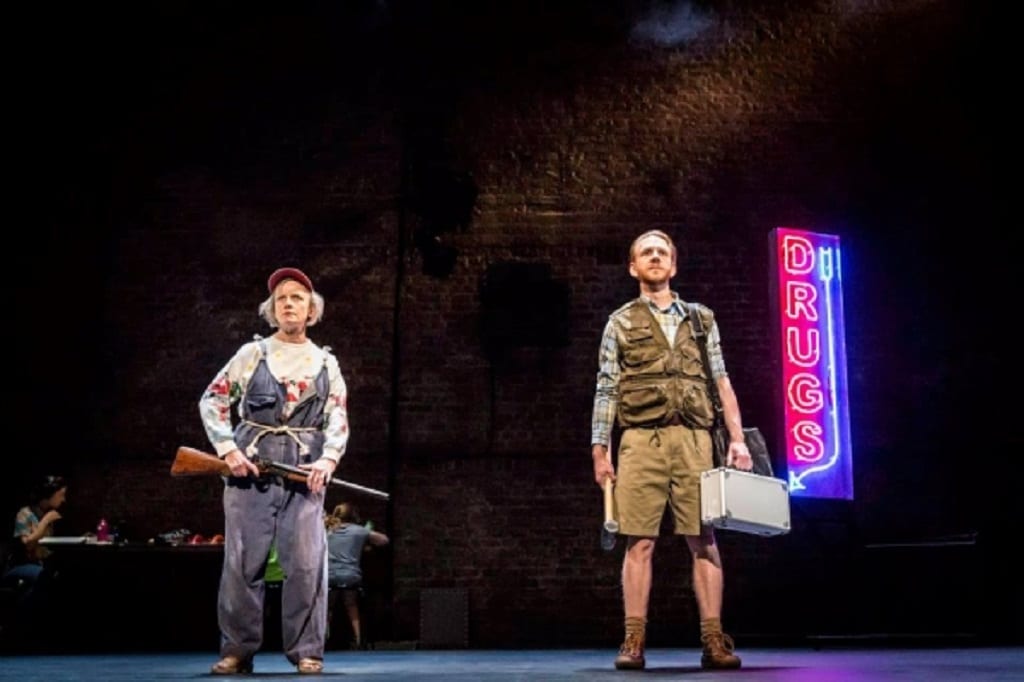In a move fuelled by unhealthy obsession an actress invades the house of her dead idol. The idol is Janet Adler, a fictional 20th century protest artist, who lived out her final years in seclusion, alongside her long-term partner Margaret Gibb (Gina Moxley). The actress is Louise Harper, who is preparing to assume the role of Adler in an upcoming biopic. The play considers the nature of greed, privacy, commercialisation, artistry and death.
Louise (Cath Whitefield) and her photographer/paramour Sam (Mark Edel-Hunt) are characterised by their blatant disrespect. The two are surprised to discover Gibb in the house, who they previously thought was dead. Louise proceeds to question Gibb about intimate biographical details: the night she met Adler, the lost art, the circumstances of Adler’s death – Louise marvels at the new opportunity of interaction, confessing that she wants to recreate that first night. She has dressed for the part: wig, flares, platforms, a stolen blazer; she looks like a retro Tilda Swinton.
Louise is a severe presence, part woman part cocaine. She is defined by this morbid desire to embody Adler completely. The play takes a sharp turn when Louise quite literally digs up the past – Sam vomits from the stench of the corpse, which was buried in the garden, while Louise fixes her dilated pupils on the skull. She dislodges it, caresses it and looks deeply into the sockets. Louise and Sam’s disregard for privacy is staggering. They are ruthlessly intent on extracting as much information as possible for their garish blockbuster.
Poor Margaret eventually caves into Louise’s desire under pressure. She has been presented with an uncanny resemblance to her departed lover, and is plagued by memories. She is brought to exhaustion. Meanwhile Sam is dying slowly from a combination of drug intoxication, blood loss and infection – Louise is blind to his need for medical attention. Sam is forced to use his dying moments to help Louise slip into the past: he directs Louise and Gibb in a final paroxysm of artistic lust. Gibb complies with vacant happiness.
The scene melts away with some projected video footage, which pans from warning signs to the trees and to the dilapidated house – Gibb admits they began to “Let the nature in.” It is now hauntingly silent. We next see Louise accepting an Oscar. She gushes about how much this means to her, denying the macabre reality of the composition, confirming to us that she really has zero integrity. Crouch’s brilliant display of Hollywood’s grotesque side: Adler and Gibb is a comment our voracious appetite for celebrity news and gossip.

